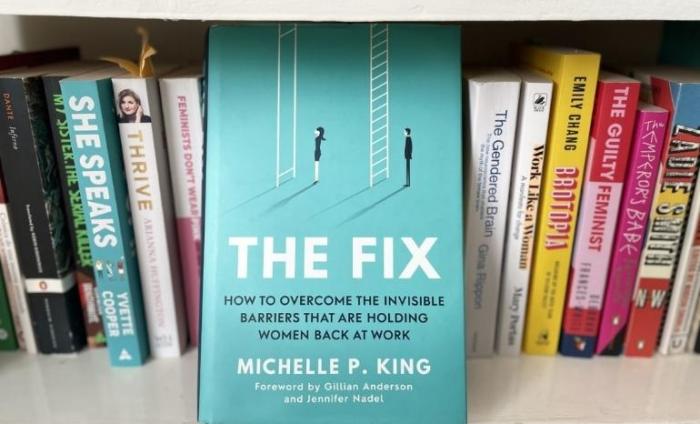
Facing any kind of discrimination can be isolating, so there is no surprise that women across the globe are setting up groups and coming together to share their experiences of gender bias and drive change in their professional and personal lives. The UCL School of Management Women in Management Book Club does just that. It brings together alumni, current students, and staff to discuss books that relate to female careers and gender at work. The meetings focus on the key ideas expressed in the books and any related experiences of the book club members. Discussion leads to tangible outcomes that can be taken into the workplace to help women make the most of their knowledge and skills in order to progress further in their careers.
A member of the Women in Management Book Club from the outset, Rebecca Cooper shares why she believes such networks of like-minded women are so important to overcome the barriers women face in sales, especially those in the technology and finance remit.
Hunter vs farmer
I studied BA (Hons) in International Business and an MSc in Management at UCL, then proceeded to work in tech sales. I am currently a Manager for our European Sales Development team at PitchBook Data.
Sales, ‘new business’ sales especially, is very male-dominated, I also work in the financial space which adds to the male dominance. New business sales is often referred to as the “hunter” role whereas Customer Success (another type of sales role) is seen as the “farmer” role, as the former requires seeking out new opportunities and the latter is nurturing current relationships. These descriptions alone are typically associated with different genders traits. And it is definitely reflective of the gender split in these jobs roles. I’ve always hated this analogy as I feel gender charged descriptors often are appealing to one gender and unappealing to the other.
Joining the Women In Management book Club
I wanted to join the WiMBC to network with like-minded individuals and become more awakened to the challenges that women face in the workplace, and I suppose to learn ‘best practices’ on how they have been able to navigate difficult situations. I am an advocate for women in sales and feel the best way to support women in the workplace is to be aware of the array of issues that women face beyond those you might have experienced yourself - trust me you will uncover more challenges with the more women you talk to! I am continuously on a path of learning so that I can promote fairer behaviours and support my team to make the workplace inclusive and equitable.
We’ve read some great books, but my favourite has to be “The Fix by Michelle King. This book not only outlines the barriers women face in the workplace but also provides actionable advice for you to implement.
As a woman currently in a management role I have found this book club extremely enlightening to not only know that I am not alone in these challenges (there’s sadly some comfort in that!), but also that we are stronger in numbers and every conversation about inequality is one step closer to bridging the gender gaps. I’ve been very fortunate to have a strong network of women around me that champion my career, and I want to give forward and help other women find their feet (and voice!) when starting their careers, just like others have helped me.
What International Women’s Day means to me
For me, International Women’s Day means acknowledging the achievements of women and striving towards an equal and fair society. My advice, find or create yourself, a network of women to advocate, support and challenge each other to be stronger and grow together. To celebrate the wins together and appreciate the learnings you get from failing (we all fail!).
Senior Management can do more to listen to the barriers women STILL face in the workplace today and don’t simply assume that these problems have solved themself because they are hiring and promoting what almost feels like a ‘token women’ or meeting their quotas for % of women in leadership roles at the company. Take the time to ask and understand.
Not exclusively to women alone, but microaggressions are a seemingly small but detrimental issue in the workplace, even more so because people don’t even realise they are doing it. For example having your expertise or judgements questioned, or being the “coffee girl”! Again, learning and discussions are SO important to uncovering these to make sure a workplace is a comfortable place for everyone regardless of your gender.